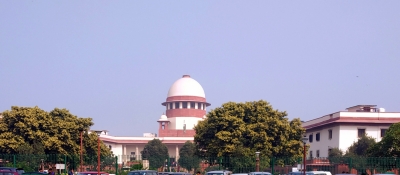Aid not fundamental right for institutions, rules SC
By IANS | Published: September 27, 2021 09:24 PM2021-09-27T21:24:04+5:302021-09-27T21:35:06+5:30
New Delhi, Sep 27 The Supreme Court on Monday said when it comes to aided institutions, there cannot ...

Aid not fundamental right for institutions, rules SC
New Delhi, Sep 27 The Supreme Court on Monday said when it comes to aided institutions, there cannot be any difference between a minority and a non-minority one, and held that right to get aid is not a fundamental right.
A bench of Justices Sanjay Kishan Kaul and M.M. Sundresh noted: "Once we hold that right to get an aid is not a fundamental right, the challenge to a decision made in implementing it shall only be on restricted grounds. Therefore, even in a case where a policy decision is made to withdraw the aid, an institution cannot question it as a matter of right."
The bench said an institution can never be allowed to say that the grant of aid should be on its own terms.
It stressed that when it comes to aided institutions, there cannot be any difference between a minority and non-minority one and Article 30 of the Constitution is subject to its own restrictions, being reasonable. "A protection cannot be expanded into a better right than one which a non-minority institution enjoys. Law has become quite settled on this issue and therefore does not require any elaboration," the bench added, in its judgment.
It made these observations while allowing an appeal by the Uttar Pradesh government against an Allahabad High Court judgment, which declared that Regulation 101 framed under the Intermediate Education Act, 1921 is unconstitutional.
A clutch of petitioners had moved the high court challenging the regulation framed under the Act and contended it violated Article 14 of the Constitution in filling the sanctioned post of Class IV employees alone by way of "outsourcing". Also, this regulation affected right to get aid, which violates fundamental rights granted to minority institutions under Article 30(1) of the Constitution.
Additional Solicitor General Aishwarya Bhati, representing the UP government, contended that the institutions being the recipients of aid are bound by the conditions attached, as there exists neither a fundamental right to receive aid nor a vested one.
Bhati added that it is not open to the respondents to question the policy decision. The bench said can't question, a policy decision being applied not only to educational institutions but spanning across the entire state in every department.
The bench said a policy decision is presumed to be in public interest, and until and unless there is manifest or extreme arbitrariness, a constitutional court is expected to keep its hands off.
On the aspect of outsourcing, the bench said: "It is clear that a recruitment by way of 'outsourcing' may have its own deficiencies and pitfalls, however, a decision to take 'Outsourcing' cannot be declared as ultra vires of the constitution on the basis of mere presumption and assumption".
The top court set aside the high court judgment.
Disclaimer: This post has been auto-published from an agency feed without any modifications to the text and has not been reviewed by an editor
Open in app